Depression: BE AWARE, SAVE A LIFE! (Informative Blog)
The bravest thing I have ever done was continuing to live when I wanted to die.
-Juliette Lewis
We can't deny the fact that depression is a common issue in our society, especially for the young people in our genaration. It's really inevitable to feel sad, to feel worry, to feel that it seems like all people doesn't want you, being isolated, and all the feeling that you feel that makes you depressed. But before all of these, let me give you some information about what really is depression and how destructive it is to those people who are experiencing this.
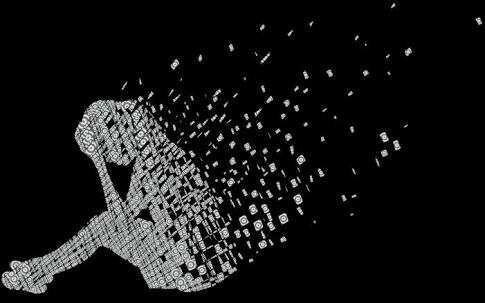
WHAT IS DEPRESSION?
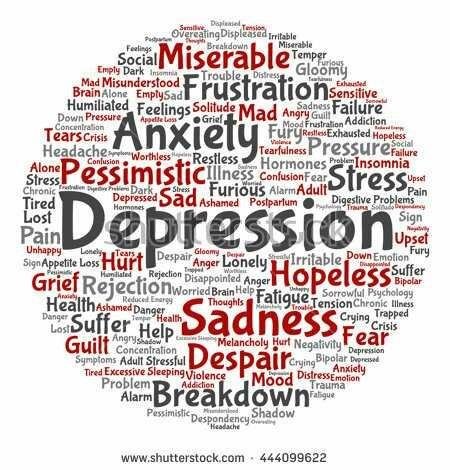
Depression (major depressive disorder) is a common and serious medical illness that negatively affects how you feel, the way you think and how you act. Depression causes feelings of sadness and/or a loss of interest in activities once enjoyed. It can lead to a variety of emotional and physical problems and can decrease a person’s ability to function at work and at home. (American Psychiatric Association)
I often hear people who says the are depressed or they are feeling depressed. But no, it doesn't work that way, as you can see depression is not a mere feeling but it is a disorder, a major disorder. It can affect how you you feel, how you think and even how you act. We can't say that just because you're sad, you are now depressed. There are a lots of symptoms of depression, and these includes the following:
- Feeling sad or having a depressed mood
- Loss of interest or pleasure in activities once enjoyed
- Changes in appetite — weight loss or gain unrelated to dieting
- Trouble sleeping or sleeping too much
- Loss of energy or increased fatigue
- Increase in purposeless physical activity (e.g., hand-wringing or pacing) or slowed movements and speech (actions observable by others)
- Feeling worthless or guilty
- Difficulty thinking, concentrating or making decisions
- Thoughts of death or suicide
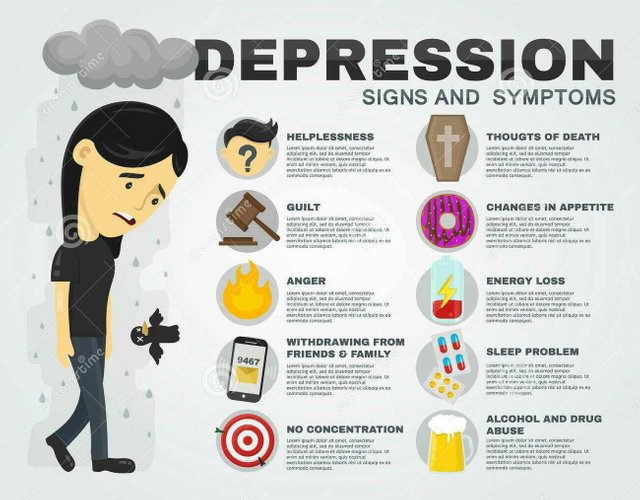
And these symptoms must last atleast two weeks for you to know that you are depressed or someone is depressed.
Depression affects an estimated one in 15 adults (6.7%) in any given year. And one in six people (16.6%) will experience depression at some time in their life. Depression can strike at any time, but on average, first appears during the late teens to mid-20s. (American Psychiatric Association)
SADNESS OR GRIEF AND DEPRESSION ARE TWO DIFFERENT THINGS.
It is normal for feelings of sadness or grief to develop in response to such situations. Those experiencing loss often might describe themselves as being “depressed.”
But being sad is not the same as having depression. The grieving process is natural and unique to each individual and shares some of the same features of depression. Both grief and depression may involve intense sadness and withdrawal from usual activities. They are also different in important ways:
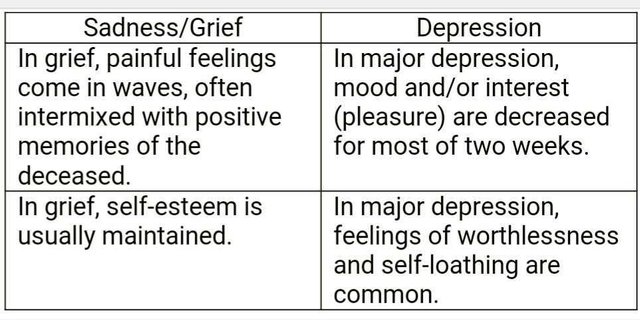
GOOD NEWS: DEPRESSION IS TREATABLE!
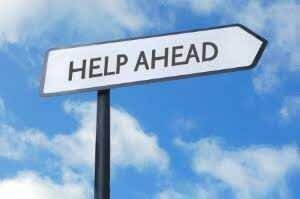
Depression is among the most treatable of mental disorders. Between 80 percent and 90 percent of people with depression eventually respond well to treatment. Almost all patients gain some relief from their symptoms. (American Psychiatric Association)
Before a diagnosis or treatment, a health professional should conduct a thorough diagnostic evaluation, including an interview and possibly a physical examination. The evaluation is to identify specific symptoms, medical and family history, cultural factors and environmental factors to arrive at a diagnosis and plan a course of action.
Medication: The uses of "antidepressants" a drug that is used to relieve or prevent depression in a person.
Psychotherapy: Psychotherapy, or “talk therapy,” is sometimes used alone for treatment of mild depression. Cognitive behavioral therapy (CBT) has been found to be effective in treating depression, it is a form of therapy focused on the present and problem solving. CBT helps a person to recognize distorted thinking and then change behaviors and thinking.
Psychotherapy may involve only the individual, but it can include others. (such as: family, couples therapy or group therapy with the same illness)
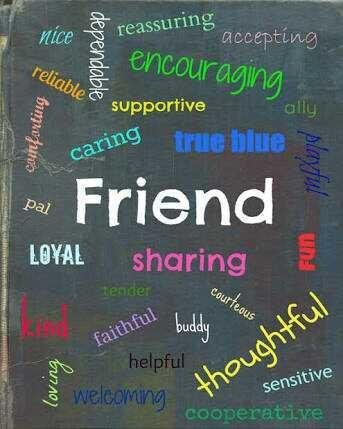
BECOME INFORMED. A really great first step in helping your friend is to find out more about depression - which will help you better understand what they’re going through.
BE THERE TO LISTEN. If your friend feels like talking, ask them how they’re going. Try asking questions like, “What can I do to help?” and “What do you find helpful?” When you want to bring up a sensitive issue with a friend, try to choose a time and place when you’re both comfortable and relaxed. It’s a good idea to avoid talking to them about it if they’re upset.
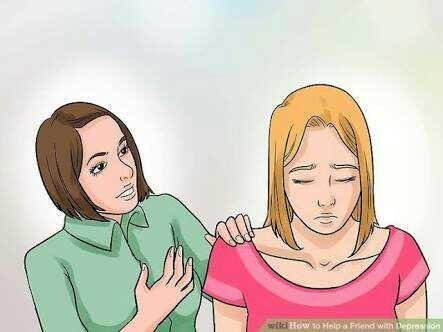 TAKE THEIR FEELINGS SERIOUSLY. If someone is suffering from symptoms of depression, it isn’t possible for them just to ‘snap out of it’, ‘cheer up’ or ‘forget about it’. When you listen to them and validate their feelings by saying things like ‘That must be really hard’ or ‘I’m here when you want to talk’, they’ll know you’re taking their feelings seriously.
TAKE THEIR FEELINGS SERIOUSLY. If someone is suffering from symptoms of depression, it isn’t possible for them just to ‘snap out of it’, ‘cheer up’ or ‘forget about it’. When you listen to them and validate their feelings by saying things like ‘That must be really hard’ or ‘I’m here when you want to talk’, they’ll know you’re taking their feelings seriously.
RESPOND TO EMERGENCIES.
If you think your friend may be in danger or at risk of hurting themselves or someone else, seek help immediately and also tell someone you trust.
The best way to treat depression is to pray and have faith. You need to trust God, that whatever happens He will never leave you. These problems and worries will just past away. And as you overcome this trials, you will learn your lesson that will help you to be a better person.
Have you ever experienced depression? The feeling is just so bad. You think about your life being purposeless. I believe what I've experienced last year is exactly like this and it lasted for a month. Thankfully though i was able to get out of it thru thinking about the Lord and thru prayers. It really helps. Anyway, thanks for sharing these. 😊
I cri